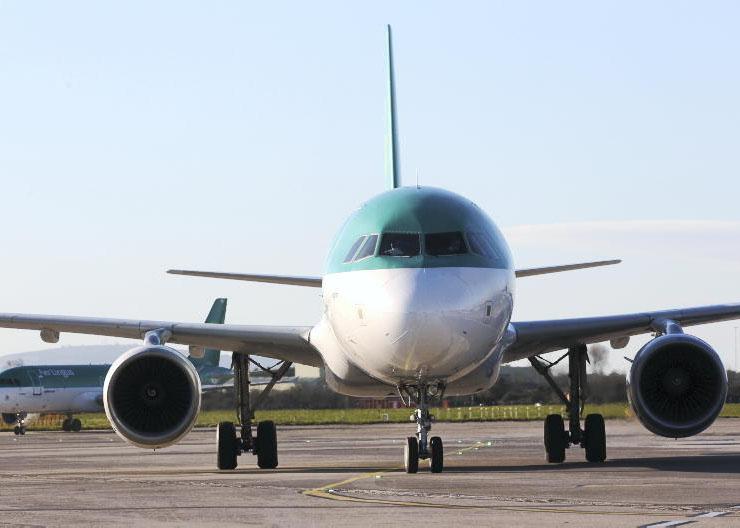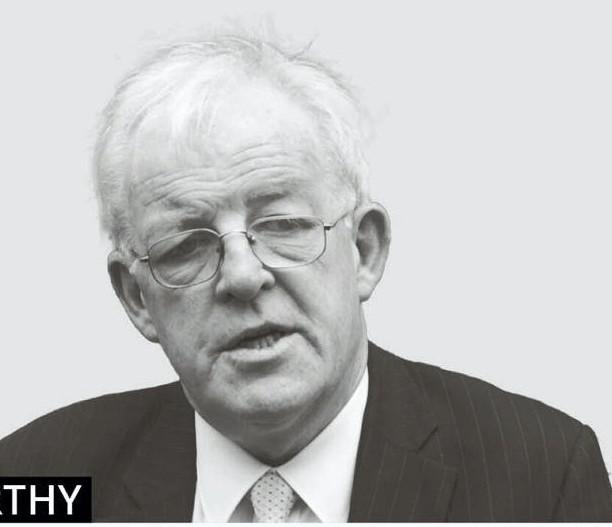Public infighting in the Conservative government over Brexit has continued through Christmas and the new year but must end fairly soon.
Britain departs the EU 14 months from now and both the withdrawal agreement and a transition arrangement must be ready for ratification by the EU27 and the European Parliament no later than about October.
The British government will need to resolve its internal squabbles if these deals are to be concluded in time. There can be no formal talks about a successor trading relationship until the UK becomes a third country at the end of March 2019. All that can be expected before Brexit day is a political statement of intent.
Settling the withdrawal and transition agreements will be a substantial task and political choices will have to be made.
“Brexit means Brexit,” or “a red, white and blue Brexit”, both favoured slogans of Mrs May and designed to defer decisions, will not suffice at the negotiating table. Moreover, the UK has imposed a demanding deadline on itself.
The withdrawal agreement will require resolution of the financial exit bill, the rights of expatriate EU citizens in the UK and of Brits in EU countries and avoidance of a reintroduced border in Ireland.
None of these was definitively settled in the phase one agreements announced in December and the Irish border issue may not be disposed of until the long-term trading relationship gets clearer.
The transition agreement will also be difficult. The EU has indicated that a 21-month deal, stretching to the end of 2020, is available but the UK will be expected to continue paying annual budget contributions, to accept EU27 immigrants and to abide by European Court rulings.
Transition
In effect, the UK will be fully in the EU until the end of transition but will have no seat at the council, no commissioner and no MEPs after Brexit day. From an Irish trading perspective, this means that the UK will still be in the EU for three more years at minimum. Several EU leaders have hinted that a longer transition period could be considered if the UK wants it but this is not easily accommodated within the treaties.
A bigger problem for EU negotiators is that the British government has yet to decide exactly what long-term European relationship it wants. The cabinet is divided even on the transition deal.
Some Tory politicians insist that the transition phase should be called an “implementation period”, devoted to practical preparations for the new long-term trading set-up.
But this simply does not add up: the long-term deal will not have been done when transition is due to commence and you cannot devise an implementation process with nothing to implement.
Some Brexiteers have also been resisting the idea of a powerless transition altogether, describing the arrangement as creating a “vassal state” since the UK would have to accept laws and decisions for a period without influence over their construction.
But nothing else has ever been on offer from the EU.
If the Brexiteers’ surprise is genuine they have not been paying attention. Only EU members can determine EU decisions: that’s what the treaties provide.
Long-term, the UK could choose to remain closely attached to the single market and to the customs union, the outcome favoured by the Confederation of British Industry and many in the financial sector.
But Theresa May has effectively ruled out anything other than a third-country free-trade agreement, a more ambitious version of the one concluded recently with Canada.
Ructions
If a deal is to be done which minimises damage to the UK economy there will have to be a series of further u-turns from Mrs May and that means further ructions in the Conservative party.
It is also a more onerous negotiating task: no deal as complex as required, and on this scale, has ever been put together in just a couple of years.
There is an option available which would simplify the negotiations – namely British adherence to the European Economic Area (EEA) arrangement with Norway, Iceland and Liechtenstein.
All three, not EU members, are effectively part of the single market for (non-agricultural) trade in goods. Add in a customs deal and this option would please British business and help to avoid a hard border in Ireland.
But the UK government has ruled out the EEA model and it would be seen as a betrayal by the Brexiteers. This leaves a bespoke negotiated settlement along the lines of the EU’s relationship with Switzerland, which is outside the EEA but has extensive bilateral deals.
The trouble is that the EU-Switzerland relationship has not gone smoothly and the EU is seeking to roll back some of the special Swiss concessions. The British are a long way from a clear Brexit policy, as the clock ticks down.
Read more
Tough EU line on next phase of Brexit talks
Brexit uncertainty resumes as Mercosur deal also looms
Public infighting in the Conservative government over Brexit has continued through Christmas and the new year but must end fairly soon.
Britain departs the EU 14 months from now and both the withdrawal agreement and a transition arrangement must be ready for ratification by the EU27 and the European Parliament no later than about October.
The British government will need to resolve its internal squabbles if these deals are to be concluded in time. There can be no formal talks about a successor trading relationship until the UK becomes a third country at the end of March 2019. All that can be expected before Brexit day is a political statement of intent.
Settling the withdrawal and transition agreements will be a substantial task and political choices will have to be made.
“Brexit means Brexit,” or “a red, white and blue Brexit”, both favoured slogans of Mrs May and designed to defer decisions, will not suffice at the negotiating table. Moreover, the UK has imposed a demanding deadline on itself.
The withdrawal agreement will require resolution of the financial exit bill, the rights of expatriate EU citizens in the UK and of Brits in EU countries and avoidance of a reintroduced border in Ireland.
None of these was definitively settled in the phase one agreements announced in December and the Irish border issue may not be disposed of until the long-term trading relationship gets clearer.
The transition agreement will also be difficult. The EU has indicated that a 21-month deal, stretching to the end of 2020, is available but the UK will be expected to continue paying annual budget contributions, to accept EU27 immigrants and to abide by European Court rulings.
Transition
In effect, the UK will be fully in the EU until the end of transition but will have no seat at the council, no commissioner and no MEPs after Brexit day. From an Irish trading perspective, this means that the UK will still be in the EU for three more years at minimum. Several EU leaders have hinted that a longer transition period could be considered if the UK wants it but this is not easily accommodated within the treaties.
A bigger problem for EU negotiators is that the British government has yet to decide exactly what long-term European relationship it wants. The cabinet is divided even on the transition deal.
Some Tory politicians insist that the transition phase should be called an “implementation period”, devoted to practical preparations for the new long-term trading set-up.
But this simply does not add up: the long-term deal will not have been done when transition is due to commence and you cannot devise an implementation process with nothing to implement.
Some Brexiteers have also been resisting the idea of a powerless transition altogether, describing the arrangement as creating a “vassal state” since the UK would have to accept laws and decisions for a period without influence over their construction.
But nothing else has ever been on offer from the EU.
If the Brexiteers’ surprise is genuine they have not been paying attention. Only EU members can determine EU decisions: that’s what the treaties provide.
Long-term, the UK could choose to remain closely attached to the single market and to the customs union, the outcome favoured by the Confederation of British Industry and many in the financial sector.
But Theresa May has effectively ruled out anything other than a third-country free-trade agreement, a more ambitious version of the one concluded recently with Canada.
Ructions
If a deal is to be done which minimises damage to the UK economy there will have to be a series of further u-turns from Mrs May and that means further ructions in the Conservative party.
It is also a more onerous negotiating task: no deal as complex as required, and on this scale, has ever been put together in just a couple of years.
There is an option available which would simplify the negotiations – namely British adherence to the European Economic Area (EEA) arrangement with Norway, Iceland and Liechtenstein.
All three, not EU members, are effectively part of the single market for (non-agricultural) trade in goods. Add in a customs deal and this option would please British business and help to avoid a hard border in Ireland.
But the UK government has ruled out the EEA model and it would be seen as a betrayal by the Brexiteers. This leaves a bespoke negotiated settlement along the lines of the EU’s relationship with Switzerland, which is outside the EEA but has extensive bilateral deals.
The trouble is that the EU-Switzerland relationship has not gone smoothly and the EU is seeking to roll back some of the special Swiss concessions. The British are a long way from a clear Brexit policy, as the clock ticks down.
Read more
Tough EU line on next phase of Brexit talks
Brexit uncertainty resumes as Mercosur deal also looms








SHARING OPTIONS